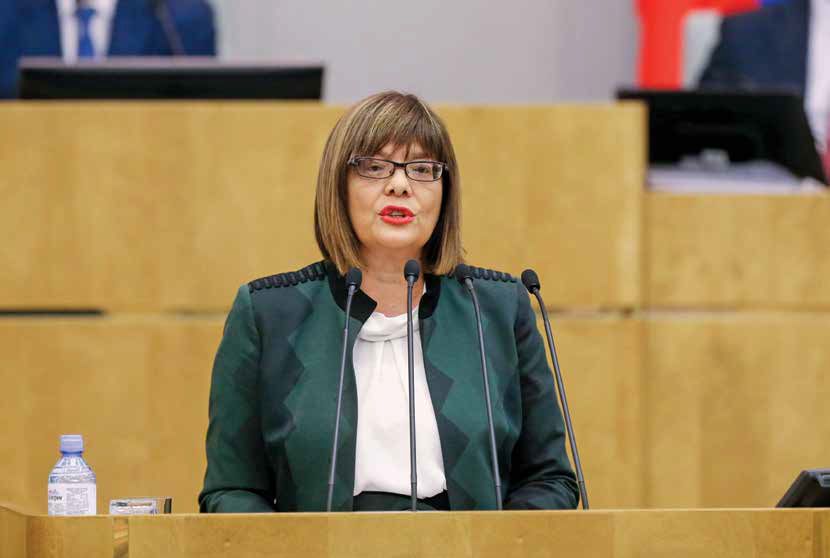This time around we have also asked the representatives of the authorities, diplomatic corps, international institutions, business associations, media and many others to express their views on the possible re-arrangement of power in the world, the European and regional political scene, the influences on Serbia’s accession
to the EU, economic development, investments in culture, and as an inevitable question this year, elections which are taking place in many countries, including Serbia.

We are witnessing numerous political and social turbulence that can cause political and social order to be modified not only globally but also in Serbia. To what extent can these developments slow or halt the EU integration process?
It is a fact that we live in the period of global changes and processes that pose great challenges to Europe and the world, and our region, as a part of Europe, shares the same problems and challenges as all other European countries. Having regard to all of this and fully understanding recent developments and priorities on the agenda of the EU presidency, we believe that the new European Commission will continue pursuing the enlargement policy through some concrete steps. It must be noted that the enlargement policy and a clear EU integration perspective is important not just for our region, but for Europe as a whole. This is why we expect the forthcoming EU-Western Balkans Summit in Zagreb, as well as the “Conference on the Future of Еurope” to bring positive steps forward with regard to further EU enlargement. This needs to increase the EU accession negotiations’ dynamics and remove the uncertainty for all of us who are in this process. Moreover, it is crucial to emphasise that the reforms we are undertaking on our path towards the EU, even when difficult, are notably implemented in the interest of all our citizens.
Parliamentary elections will take place soon, with a part of the opposition announcing an election boycott. Is such an approach a mitigating or aggravating circumstance for the governing structure?
We are going to have regular parliamentary and local elections and as this term of office of the Parliament is closing to an end, allow me to underline that through our diligent work and commitment we have adopted over 600 laws and over 280 other acts. Thereby we have improved numerous areas in our society and made some important steps towards establishing a favourable business environment, building infrastructure, reduction of unemployment, and creation of prerequisites for a better situation in healthcare, education, administration. I am particularly proud of the fact that we will end this term of office with the adoption of the Law on the Origin of Property. This has all contributed to making Serbia a financially stable country today, with a significant economic growth and foreign investments influx.
With regard to the forthcoming elections, it is first of all important to emphasise that through the Inter-Party Dialogue we have improved every single aspect of the election process, as compared to previous election cycles. The Serbian Parliament has adopted amendments to the laws that reduce the electoral threshold from 5% to 3%, which provides an opportunity for a significantly increase in the Parliament’s representativeness. For the Serbian Progressive Party, the lower threshold will result in fewer seats in the Parliament, but this proposal was supported because we believe it contributes to development of the political life within the institutions. We have adopted laws preventing misuse of public resources during the election campaign, as well as the proposal of an opposition MP, Ms Gordana Čomić, to increase the number of women in electoral lists to 40%. The Supervisory Board has been established for the first time, we have elected new members to the Regulatory Authority for Electronic Media (REM), in line with the 3+2 formula we agreed upon in the Dialogue, and also improved the work of the Republic Electoral Commission (RIK), all for the purpose of a better control over the election process. This indicates that all the conditions for fair and free elections are in place, and the fact that some politicians still do not wish to stand for elections only indicates that they are afraid of the election results reflecting people’s opinion.